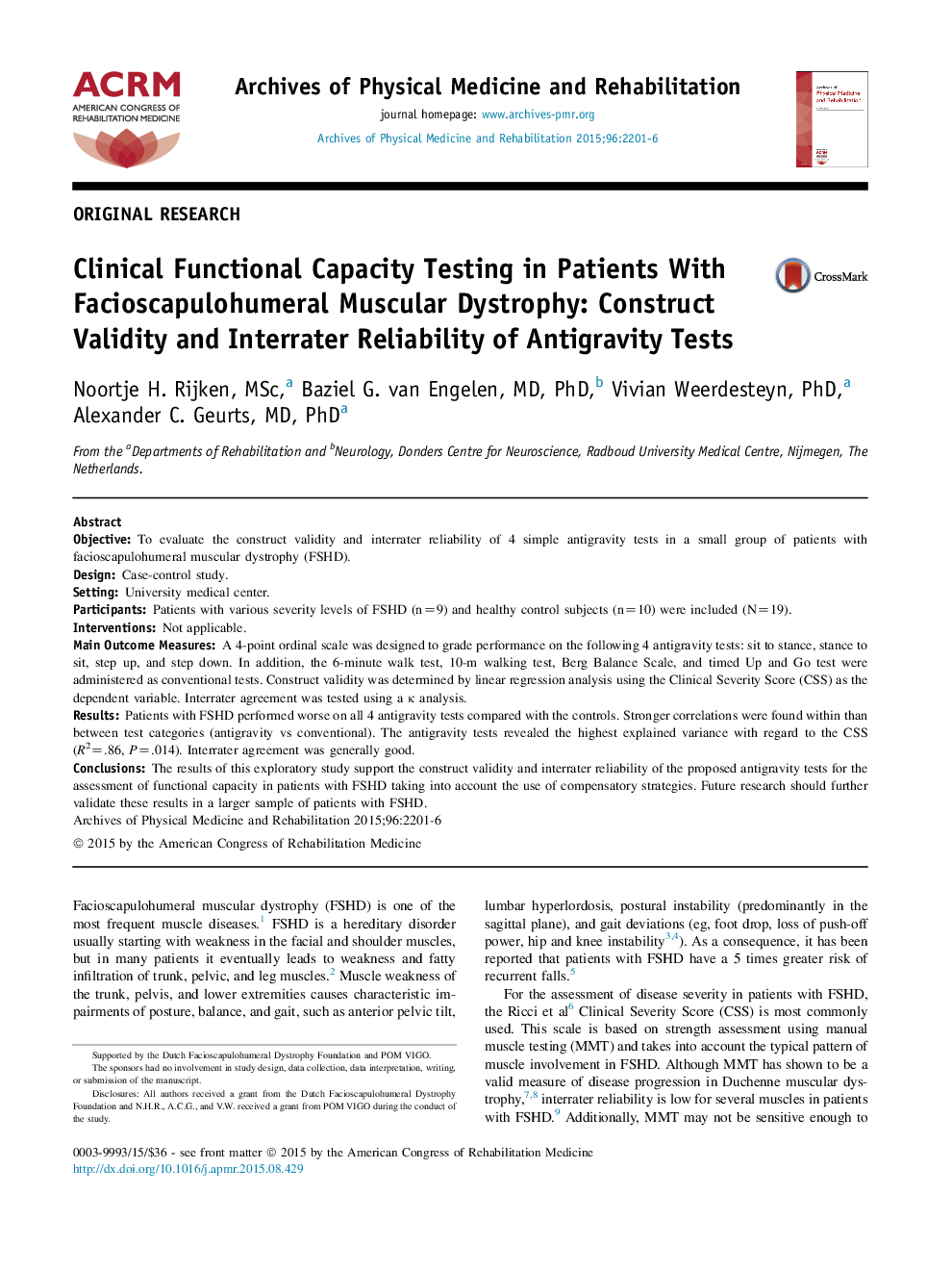| Article ID | Journal | Published Year | Pages | File Type |
|---|---|---|---|---|
| 3448204 | Archives of Physical Medicine and Rehabilitation | 2015 | 6 Pages |
ObjectiveTo evaluate the construct validity and interrater reliability of 4 simple antigravity tests in a small group of patients with facioscapulohumeral muscular dystrophy (FSHD).DesignCase-control study.SettingUniversity medical center.ParticipantsPatients with various severity levels of FSHD (n=9) and healthy control subjects (n=10) were included (N=19).InterventionsNot applicable.Main Outcome MeasuresA 4-point ordinal scale was designed to grade performance on the following 4 antigravity tests: sit to stance, stance to sit, step up, and step down. In addition, the 6-minute walk test, 10-m walking test, Berg Balance Scale, and timed Up and Go test were administered as conventional tests. Construct validity was determined by linear regression analysis using the Clinical Severity Score (CSS) as the dependent variable. Interrater agreement was tested using a κ analysis.ResultsPatients with FSHD performed worse on all 4 antigravity tests compared with the controls. Stronger correlations were found within than between test categories (antigravity vs conventional). The antigravity tests revealed the highest explained variance with regard to the CSS (R2=.86, P=.014). Interrater agreement was generally good.ConclusionsThe results of this exploratory study support the construct validity and interrater reliability of the proposed antigravity tests for the assessment of functional capacity in patients with FSHD taking into account the use of compensatory strategies. Future research should further validate these results in a larger sample of patients with FSHD.
